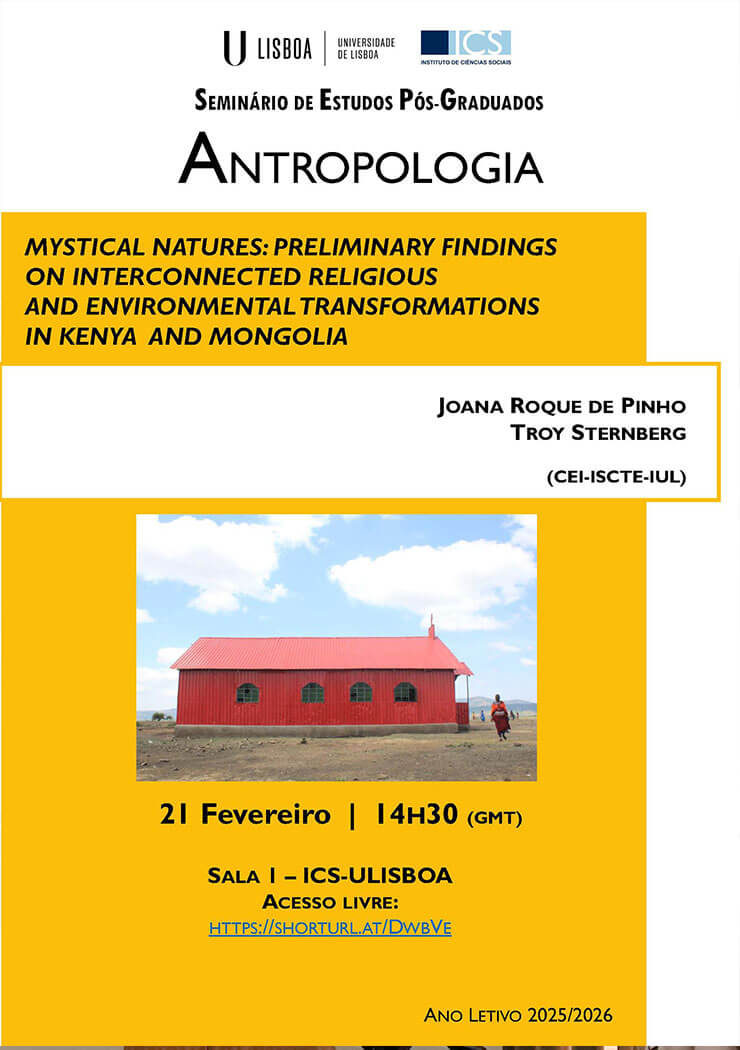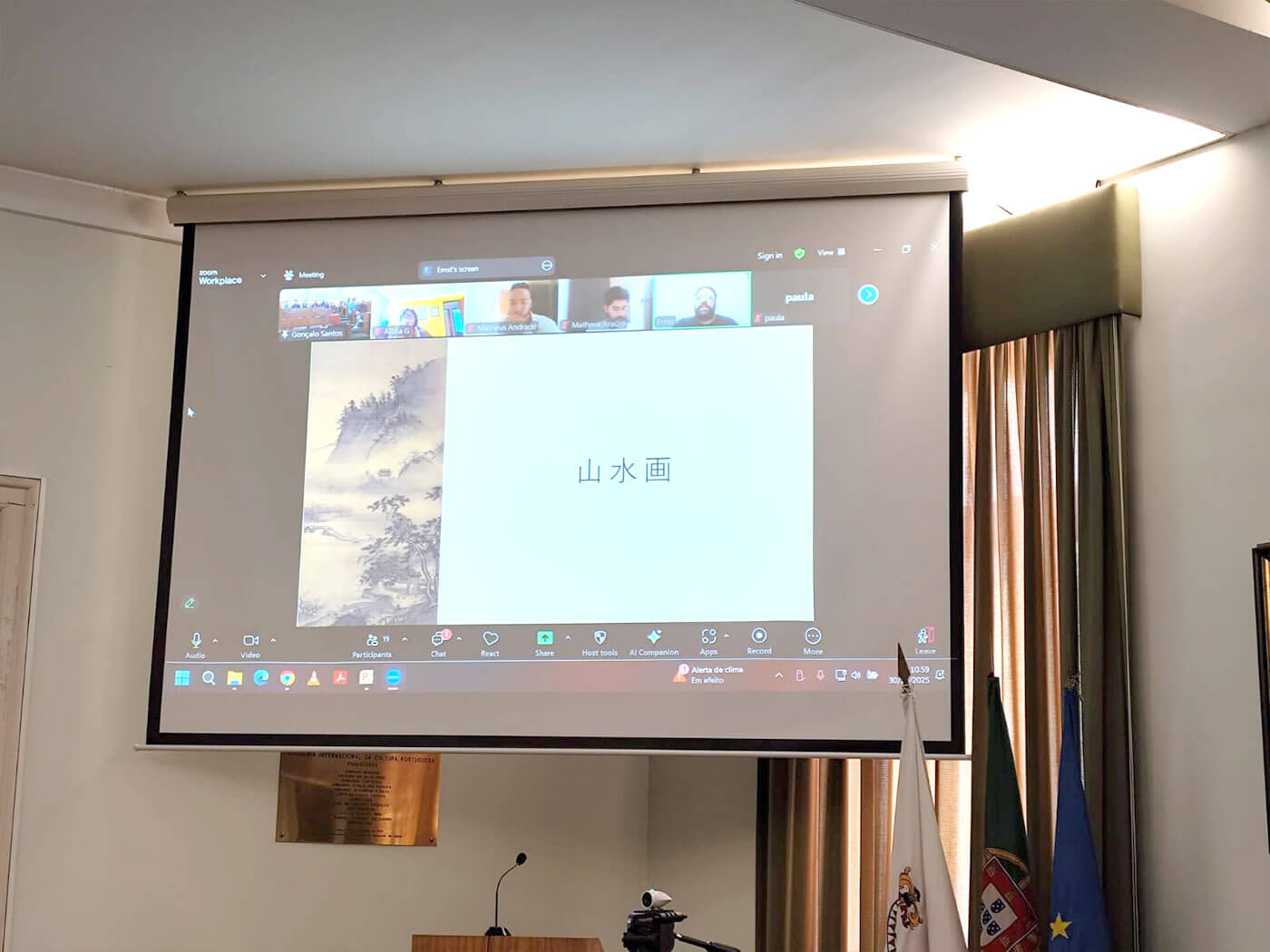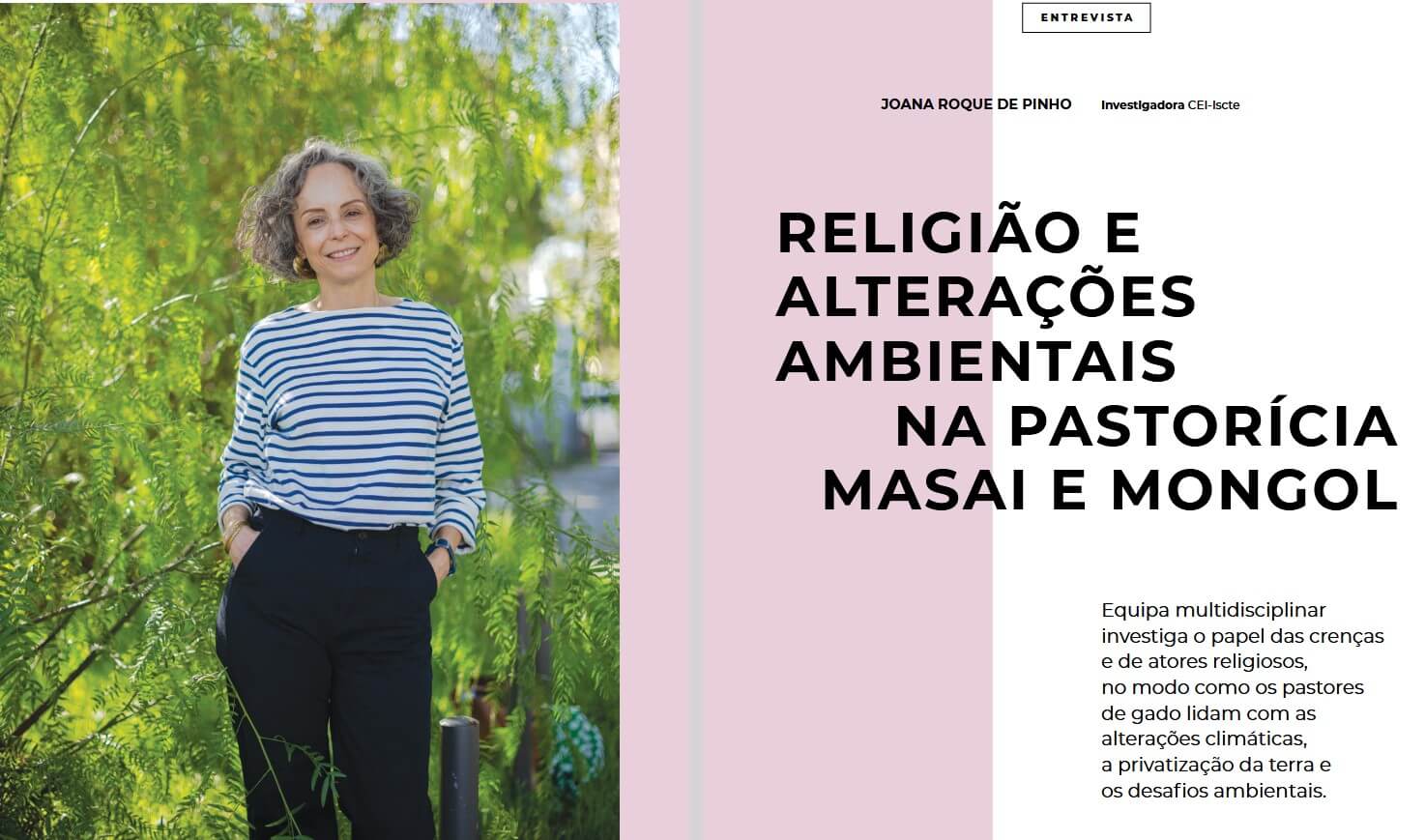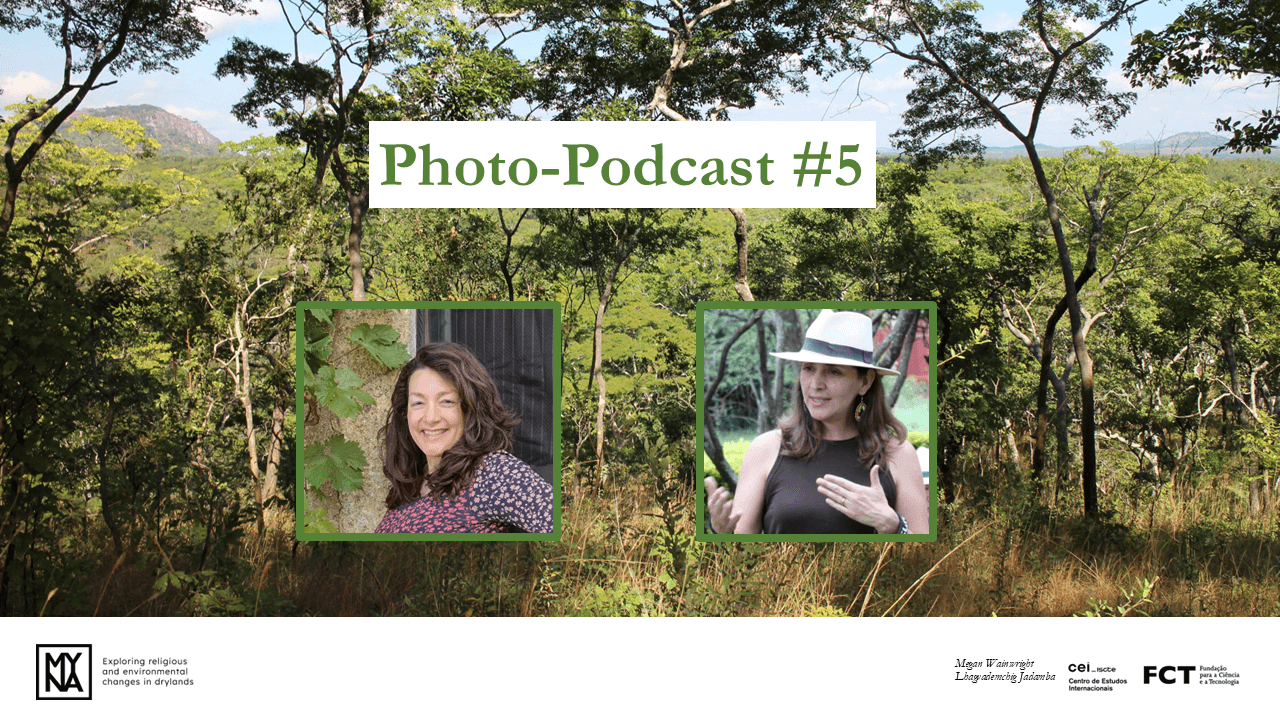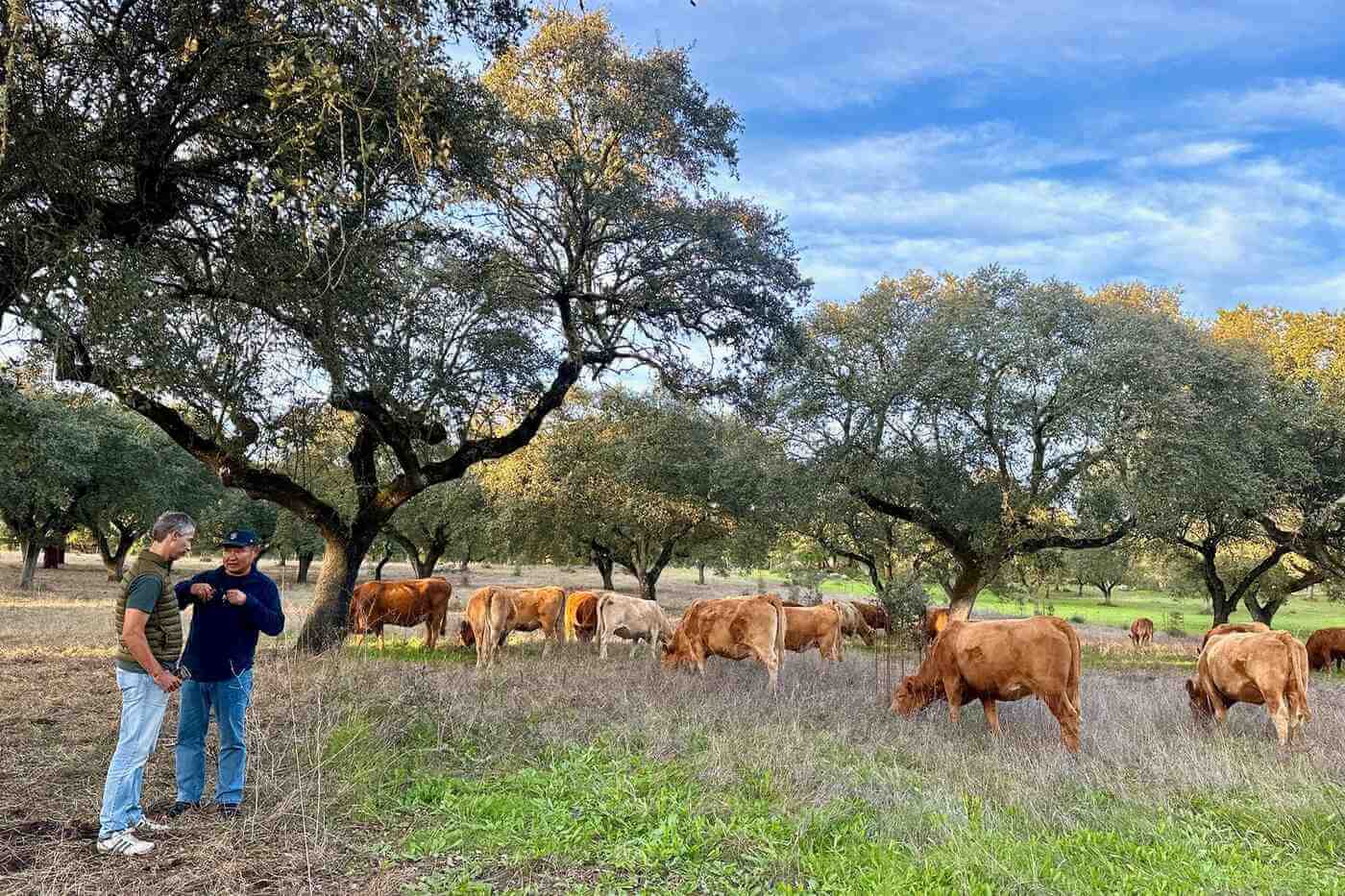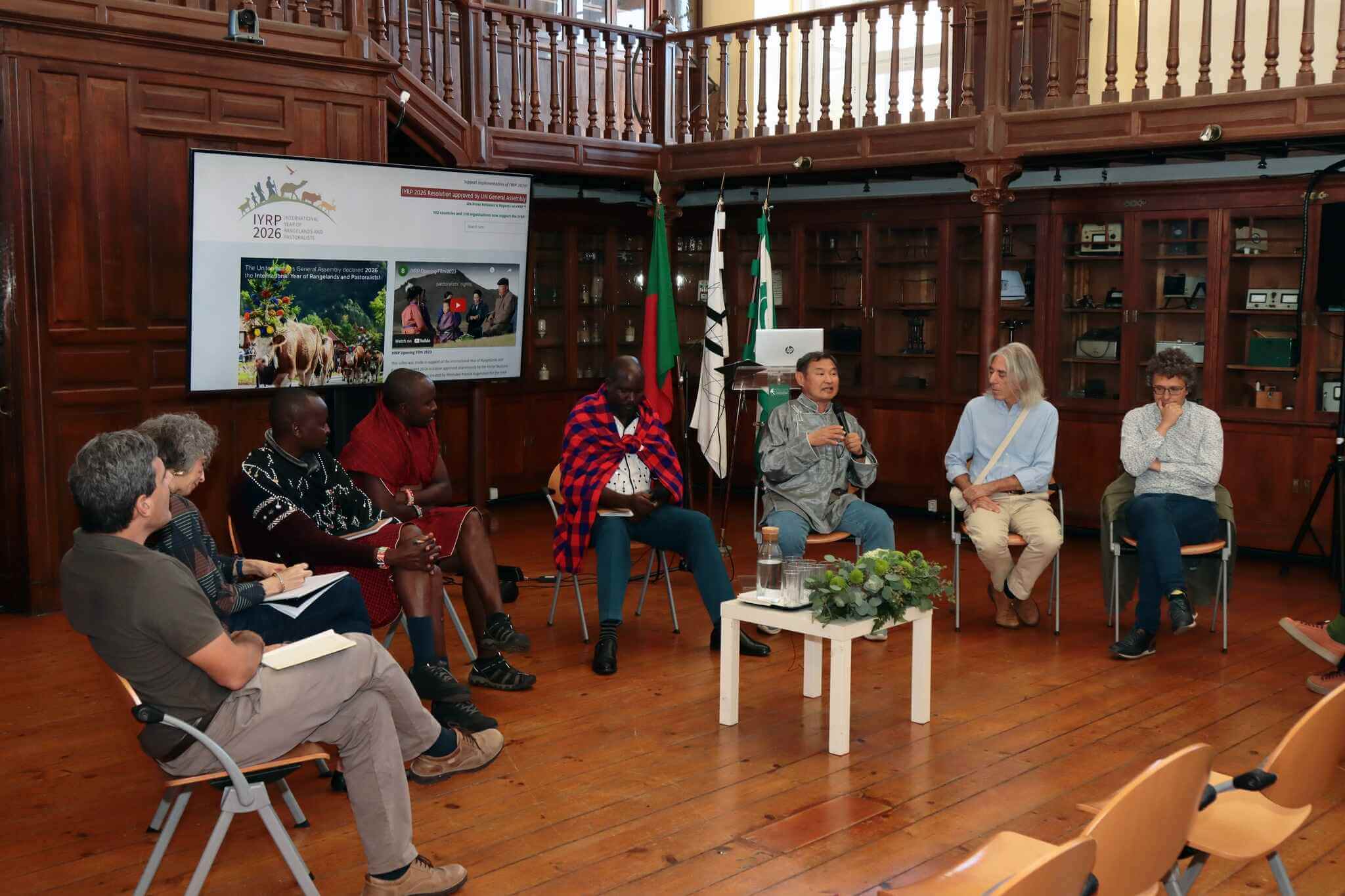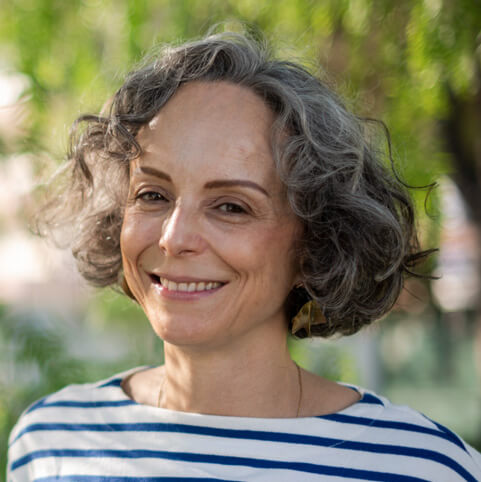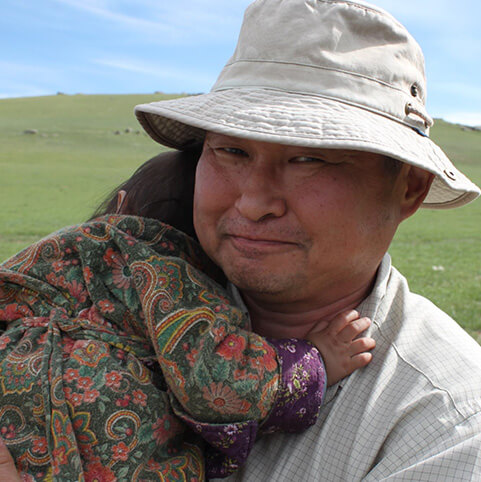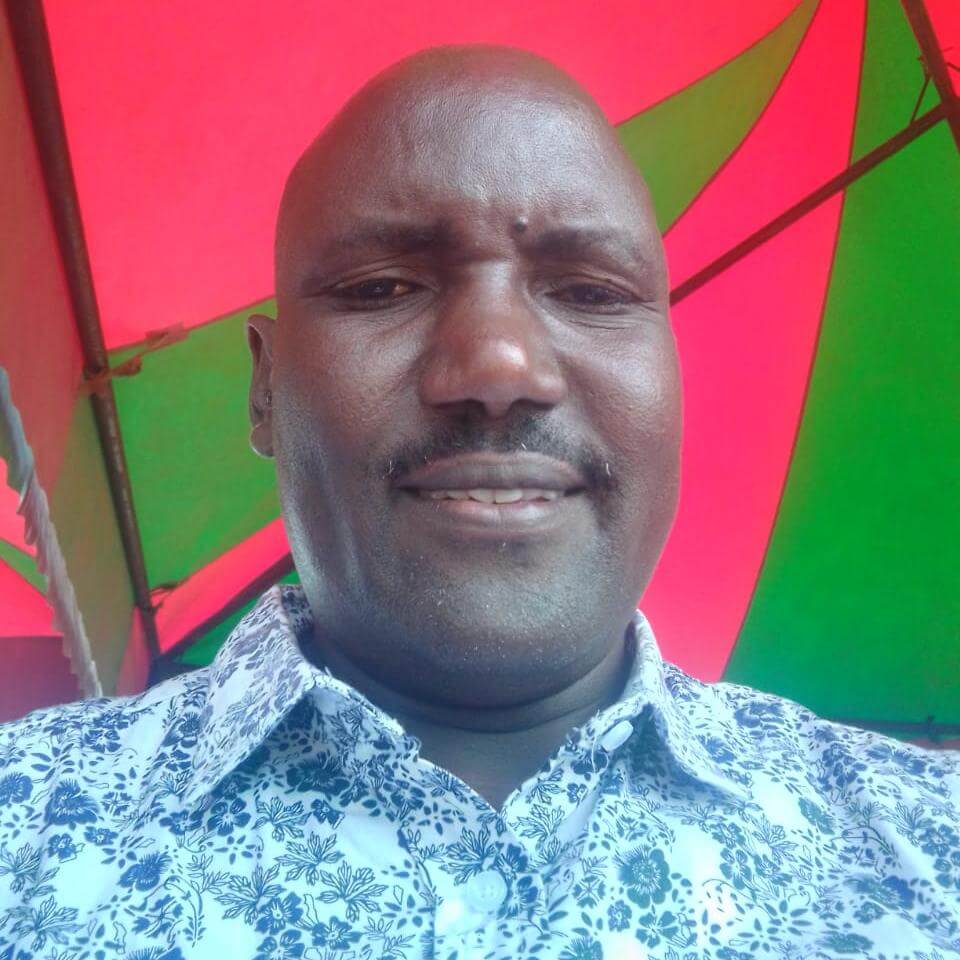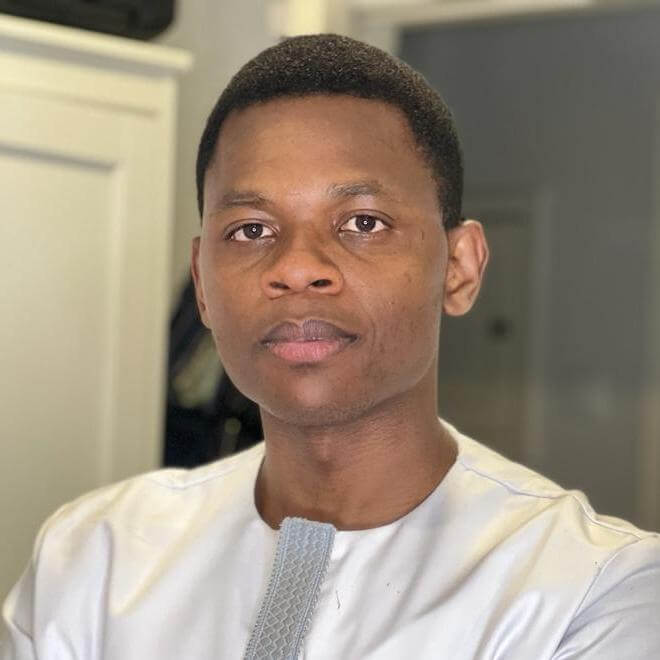Just like two years ago, Troy co-organized the stimulating 7th Oxford Interdisciplinary Desert Conference at the University of Oxford. Hosted by the School of Geography and the...
Read More >Mystical Natures
A comparative study of religious-environmental dynamics among Inner Asian and African dryland communities
About
Arid and semi-arid areas, which cover about 41% of the world and sustain two billion people, are uniquely challenged under global environmental change. Shifts in land management, land tenure and land use, political instability, and climate change challenge dryland populations who are often mobile and rely on livestock. In parallel, some dryland areas are undergoing rapid religious transformations, such as conversion to global religions, spiritual revitalization, and radicalization, which occur alongside cultural change, economic diversification, and political marginalization. The MYNA project explores relationships between religious and environmental transformations in dryland areas of Inner Asia and Africa by focusing on Mongolian and Kenyan pastoral systems and northern Mozambican farming systems. This study advances the scholarship on global environmental change by addressing the neglected dimensions of spirituality, religion and religious change. Find out more here.
Myna News
New MYNA photo-podcast highlights changing religious and environmental landscapes in Amboseli, Kenya
In this sixth MYNA photo-podcast Megan Wainwright speaks with Joana Roque de Pinho about her recent fieldwork in Amboseli, Kenya and what has changed since...
Read More >Findings presented in Post-Graduate Anthropology Seminar at the University of Lisbon (ICS)
Team members Troy and Joana recently discussed their preliminary findings at the Instituto de Ciências Sociais (ICS), University of Lisbon, in the Seminar in Post-Graduate...
Read More >Religion and Environment panel at the V Conferência Bienal Internacional de Antropologia do Ambiente in Lisbon
The V Conferência Bienal Internacional de Antropologia do Ambiente (Fifth Biennial International Conference on Environmental Anthropology) took place at the Sociedade de Geografia de Lisboa...
Read More >ENTRECAMPUS magazine highlights MYNA project
Iscte’s magazine, ENTRECAMPUS, highlights MYNA Project in interview (16 December 2024). Browse the full issue here.
Read More >New MYNA photo-podcast on fieldwork in Mozambique, Kenya and Mongolia
In this fifth MYNA photo-podcast Megan Wainwright speaks with Angela Kronenburg García about fieldwork she has done in Mozambique, and her recent fieldwork in Kenya...
Read More >MYNA symposium participants visit farms in Alentejo
To wrap up MYNA symposium-related activities, what can be better than traveling to the beautiful montado agro-silvopastoral system of Alentejo and communing with the local livestock?We did...
Read More >Kenyan co-researchers take center stage at the MYNA symposium
Stanley ole Neboo, Lenaai ole Mowuo and Richard ole Supeet. Photo: Angela Kronenburg García A highlight of the MYNA symposium in Lisbon was the participation...
Read More >MYNA team members participate in roundtable on Mobile Pastoralism at ISA
On November 11th, 2024, MYNA team members Stanley, Richard, Lenaai and Batbuyan, and CRIA-Iscte’s Júlio Sá Rego were invited speakers in the Roundtable: A conversation on mobile pastoralism...
Read More >Podcasts
Playlist
See team members’ publications here:
Yann le Polain de Waroux and Angela Kronenburg García
Abstract
Agricultural frontiers continue to expand rapidly in multiple parts of the world, with massive social and
ecological consequences. As awareness of these issues rises, so does societal pressure on frontier investors, who
find themselves under increased scrutiny from civil society and environmental groups. In this study, we argue
that frontier actors, in response to these pressures, deploy narratives that seek to resolve moral tensions around
their activities in an attempt both to lessen exposure to criticism and to appease their own moral insecurities.
Through a re-analysis of interviews conducted between 2013 and 2018 in two land-use frontier settings, the Gran
Chaco region in South America and Niassa province in Mozambique, we explore the narratives used by frontier
investors to frame and justify their actions as rightful and appropriate. We also highlight the important role
played in this process by brokers who, in addition to facilitating these investments materially, operate at the
discursive level to fashion these narratives into a positive, socially acceptable vision of frontier development. In
disseminating the carefully curated “dream” of a morally just frontier, brokers pre-empt critiques of frontier
investments and help bring about the future they want.
Read this publication here.
Troy Sternberg, Joana Roque de Pinho,
Batbuyan Batjav
ABSTRACT: The developing field of Mongolian International Studies offers a diverse range of research topics. A review of recent articles reflects an emphasis on geo-politics, particularly evolving relations with its superpower neighbours. Whilst state-to-state engagement with China and Russia predominates, regional countries (Japan, Korea) and the US and Europe are examined within the ‘Third Neighbour’ policy. Trade and economics are also studied, from Oyu Tolgoi and mining to the role of the IMF and international agencies. Currently lacking is a focus on human-driven engagement that reflects Mongolian livelihoods, spirituality and community environments. Such social and cultural dynamics are essential to both pastoral and rural livelihoods and to understanding the nation. In 2020-2022 international academic endeavours enabled Mongolian herder representatives to participate in a global drylands exchange network with dryland residents in thirteen countries. The process provided an exceptional opportunity to present Mongolian perspectives to pastoralists and academics from Africa, the Middle East and Central Asia. This grounded Mongolian livelihoods and situated rural dynamics in a global context. Here we report key engagements and findings as Mongolian herders shared lives and practices in the context of this international pastoral/drylands project. Moving beyond the political/economic rubric, as this project did, delivers a more representative and complete comprehension of Mongolia to the global international studies community.
Browse the whole issue here
Lhagvademchig Jadamba
Learn about the fascinating life of the former Head of Mongolian Buddhism through MYNA collaborator Professor Lhagvademchig Jadamba’s latest publication “The Ninth Jebtsundampa, Jampel Namdrol Chokyi Gyeltsen” published in The Treasury of Lives, a peer-reviewed biographical encyclopedia of Tibet, Inner Asia, and the Himalaya.
The Ninth Bogd Jebtsundampa Khutugtu, born in Tibet in 1932, was recognized as the reincarnation of the Bogd Khan, who was Mongolia’s theocratic ruler between 1911 and 1924. The Ninth Jebtsundampa’s life in exile and mission to promote Buddhist teachings spanned Mongolia’s transition to democracy, contributed to the revival of Mongolian Buddhism and placed Buddhism at the heart of diplomatic relations between China, India, Mongolia and Russia.
Read the article HERE
Joana Roque de Pinho, Stanley Kutiti ole Neboo, Debra Seenoi, Angela Kronenburg García, Daniel Lepaiton Mayiani, Lenaai ole Mowuo, Matinkoi ole Mowuo, Nurit Hashimshony-Yaffe, Sabdio Wario Galgallo, Troy Sternberg, Batbuyan Batjav, Bolor-Erdene Battsengel, Enkhbayar Sainbayar, Andrea Pase
Based on first-hand accounts of pastoralist friends and collaborators, this chapter examines how Kenyan and Mongolian livestock keepers experienced and responded to early State-enforced lockdown measures (hereafter, ‘lockdown(s)’). We found that, like elsewhere, lockdowns have exacerbated existing socioeconomic vulnerabilities linked to gender, age, and structural power inequalities (Leach et al. 2021). But our case studies also suggest they promoted different kinds of mobility, collective action, pastoral knowledge transmission, and cultural revitalization, and created space for specific livelihood strategies to blossom.
Read this publication here.
Troy Sternberg
Mega-Infrastructure Projects (MIPs) represent a central element of globalized development. MIPs like the Chinese driven `Belt and Road Initiative’ (BRI) include large-scale agrarian, road, rail, port and energy networks. They are complex ventures involving international capital and multiple stakeholders. Disenchanted Modernities presents 16 case studies showing that the promise of a sustainable modern development by MIPs leave many local users disenchanted: They don’t profit from the MIPs but lose access to their resources often held in common property and governed by local institutions. The book describes the strategies of states and companies leading to commons grabbing as well as local responses to MIPs in Asia, Africa, Americas and Europe. This book adds to the debate on the drama of the grabbed commons.
Read here.
Christopher McCarthy, Yuki Konagaya, Troy Sternberg, Erdenebuyan Enkhjargal, Buho Hoshino
A detailed study of the ancient caravan routes connecting Mongolia and Tibet has yet to be established. This paper describes the results of initial investigations on the identification of caravan traces through Mongolia from historical sources, fieldwork, and remote sensing reconnaissance. Recreating the Roerich Central Asian Expedition of 1927, we identify several artifacts and locations that support our belief that these routes contributed to the movement and exchange of people, ideas, and commerce across the desert landscapes of Inner Asia and helped shape cultural and religious identities that still exist to this day. Moreover, we argue the Mongolia to Tibet caravan routes were part of the greater network of ancient Silk Roads and should be considered as such: an important, intangible cultural heritage worthy of further exploration, preservation, and scholarly study.
Read here.
Kronenburg García, Angela; Meyfroidt, Patrick; Abeygunawardane, Dilini; Sitoe, Almeida A.
The literature on land-use frontiers has overwhelmingly focused on active frontiers of expansion. We focus on an emerging
frontier. We studied the decisions, narratives, and practices of the actors driving land-use change in Niassa, Mozambique. Based on
ethnographic research carried out between early 2017 and late 2018 among investors engaged in commercial agriculture and plantation forestry, we show how successive waves of actors with different backgrounds, motives, and business practices arrived in Niassa and attempted to establish farms or plantations yet repeatedly failed and left, or remained but continued to struggle. We show how even though waves come and go, they do leave sediments behind, legacies that over time add up to overcome the various constraints that investors face and gradually form the conditions for a frontier to emerge. We argue that the build-up of these legacies, particularly after the end of the civil war in 1992, has given rise to a new wave, which is qualitatively different from the previous ones in the sense that the actors did not arrive from elsewhere but were already present in Niassa. This wave thus emerges from within the region, building on the legacies of previous waves, indicating that over time endogenous processes may replace externally driven waves. We contribute to frontier theory by arguing that waves and legacies shape emerging frontiers through their dynamic interaction.
Read here.
Roque de Pinho, J., Kronenburg García, A., ole Supeet, R., ole Mowuo, L., ole Neboo, S. and ole Mowuo, M. 2025. Pastoralism and Pentecostalism: Religious dimensions of land tenure dynamics in southern Kenya. 7th Oxford Interdisciplinary Desert Conference. School of Geography and the Environment, University of Oxford, UK. March 20-21, 2025. https://www.geog.ox.ac.uk/events/deserts/index.html
Roque de Pinho, J., Kronenburg García, A., ole Supeet, R., ole Mowuo, L., ole Neboo, S. and ole Mowuo, M. 2025. Pastoralism and Pentecostalism: Religious dimensions of land tenure dynamics in southern Kenya. V Conferência Bienal Internacional de Antropologia do Ambiente. Sociedade de Geografia de Lisboa, Lisboa. January 30-31, 2025.
Jadamba, L. 2024. Ritual of Removing the Seal of Landlord: Nāgas and Lamas. International Mongolian Studies Symposium Vienna 2024, Austrian Academy of Sciences, Vienna, Austria, November 25-26, 2024. https://www.oeaw.ac.at/en/isa/events/event-detail/international-mongolian-studies-symposium-vienna-2024
Roque de Pinho, J., ole Neboo, S., and Ole Supeet, R. 2024. Pastoralism and Pentecostalism: How Commons and Christianity intersect in southern Kenya Maasailand. 4th International Conference Social Solidarity Economy and the Commons, Iscte-IUL, Lisbon. November 13-15, 2024. https://ssecommons.cei.iscte-iul.pt/
Jadamba, L. 2024. Buddhist Ritual of Removing the Seal of Land-Spirits: Benevolent or Malevolent for the Environment? Pastoralism in transition: Exploring intersections of religious and environmental changes international symposium. ISCTE-IUL & Sociedade de Geografia de Lisboa (SGL). Nov. 6-8, 2024.
Wainwright, M. and Roque de Pinho, J. 2024. Relationships between religious changes and environmental changes in drylands: A systematic review of qualitative research. Pastoralism in transition: Exploring intersections of religious and environmental changes international symposium. ISCTE-IUL & Sociedade de Geografia de Lisboa (SGL). Nov. 6-8, 2024. https://www.iscte-iul.pt/eventos/3645/pastoralism-in-transition-exploring-intersections-of-religious-and-environmental-changes
Roque de Pinho, J. 2024. Mystical Natures: A project overview. Pastoralism in transition: Exploring intersections of religious and environmental changes international symposium. ISCTE-IUL & Sociedade de Geografia de Lisboa (SGL). Nov. 6-8, 2024.
Kronenburg García, A., ole Mowuo, L. and Roque de Pinho, J. 2024. Land, culture and religion among the Loita Maasai of Kenya. Pastoralism in transition: Exploring intersections of religious and environmental changes international symposium. ISCTE-IUL & Sociedade de Geografia de Lisboa (SGL). Nov. 6-8, 2024.
Roque de Pinho, J., ole Supeet, R., ole Neboo and Kronenburg García, A., 2024. Pastoralism and Pentecostalism: Private land/sacred land in the Amboseli Ecosystem, southern Kenya. Pastoralism in transition: Exploring intersections of religious and environmental changes international symposium. ISCTE-IUL & Sociedade de Geografia de Lisboa (SGL). Nov. 6-8, 2024.
Sternberg, T., Roque de Pinho, J. and Batjav, B. 2024. Encountering spirituality through a Gobi dryland transect. Pastoralism in transition: Exploring intersections of religious and environmental changes international symposium. ISCTE-IUL & Sociedade de Geografia de Lisboa (SGL). Nov. 6-8, 2024.
Roque de Pinho, J. 2024. Pastoralism and Pentecostalism: Disentangling the Religious Dimension of Social-Ecological Change in southern Kenya. 16th European Sociological Association (ESA) Conference, Porto, Portugal. August 27-30th, 2024 [Accepted abstract, cancelled participation].
Roque de Pinho, J., ole Neboo, S. Ole Supeet, R.; Kronenburg García, A. 2024. Pastoralism and Pentecostalism: revealing the religious dimension of changing land tenure/use dynamics in southern Kenya. 21st Annual Conference of the European Association for the Study of Religions (EASR) – Nature, Ecology, and Religious Responses to Climate Change. Gothenburg, Sweden, August 19-23, 2024.
Roque de Pinho, J. 2024. Pastoralism and Pentecostalism: Disentangling the Religious Dimensions of Social-Ecological Change in Southern Kenya. The 2024 EASA (European Association of Social Anthropologists) Conference, Doing and Undoing Anthropology. Barcelona, Spain, July 23-26, 2024.
Kronenburg García, A. ole Mowuo, L., Roque de Pinho, J. 2024. Land, culture and religion: change and transformation among the Loita Maasai in Kenya. POLLEN 2024 (Political Ecology Network) Conference: Toward plural and just futures. University of Dodoma, Dodoma, Tanzania, June 10-12, 2024.
Roque de Pinho, J., and ole Neboo, S. 2024. Pastoralism and Pentecostalism: Disentangling the religious dimension of changing land tenure/use dynamics in southern Kenya. POLLEN 2024 (Political Ecology Network) Conference: “Toward plural and just futures”. University of Dodoma, Dodoma, Tanzania, June 10-12, 2024.
Roque de Pinho, J., and ole Neboo, S. 2024. Pastoralism and Pentecostalism: Disentangling the religious dimension of changing land tenure/use dynamics in southern Kenya. The 3rd Great African Rift Colloquium. Maasai Mara University, Narok, Kenya & Centre National pour la Recherche Scientifique (CNRS). May 13-17, 2024. [Accepted abstract, cancelled participation]
Jadamba, L. 2024. Mongolia in Motion: Concepts of Nüüdel (moveableness) and Ezen (lord). Workshop on Maps and the Rights of the Nomadic People: Spatial Representations of Nomadic Societies and Landscapes in Northeast Asia. Tohoku University, Sendai, Japan. January 11, 2024. http://www2.cneas.tohoku.ac.jp/content/files/20241223flyer.pdf
Roque de Pinho, J., Kronenburga García, A., ole Mowuo, L., ole Neboo, S., and ole Mowuo, M. 2023. Ilpuli leCorona: Maasai meat camps at the intersection of Pentecostalism and a pandemic. 5.º Encontro REPORT(H)A (Rede Portuguesa de História Ambiental). University of Minho, Braga. October 19-21, 2023 [Accepted abstract, cancelled participation].
Roque de Pinho, J., Kronenburga García, A., ole Mowuo, L., ole Neboo, S., and ole Mowuo, M. 2023. War or Wellbeing? Maasai meat camps as a response to COVID-19. 19th IUAES-WAU World Anthropology Congress. New Delhi, India. October 14-20, 2023.
Sternberg, T. 2023. Women herders’ changing role in Gobi pastoralism. 19th IUAES-WAU World Anthropology Congress. New Delhi, India. October 14-20, 2023.
Roque de Pinho, J. 2023. Mystical Natures: Exploring religious-environmental dynamics among Inner Asian and African dryland communities. Conferência 10 anos CEI-ISCTE, ISCTE-IUL, Lisbon, Portugal. October 12-13, 2023.
Roque de Pinho, J. (presenter), Kronenburga García, A., ole Mowuo, L., ole Neboo, S., and ole Mowuo, M. 2023. Maasai “meat camps” under lockdown: Embodying the nomadic values of reciprocity, solidarity and hospitality during a pandemic. Nomadic Ethics and Intercultural Dialogue: Past, Present and Future International Conference. International Institute for the Study of Nomadic Civilizations (IISNC), UNESCO, the Commission on Nomadic Peoples & the Mongolian Anthropological Association. National University of Mongolia, Ulaanbaatar, Mongolia. June 22-23, 2023.
Roque de Pinho, J. (presenter), Kronenburga García, A., ole Mowuo, L., ole Neboo, S., and ole Mowuo, M. 2023. Olpul leCorona: Maasai meat camps at the intersection of a pandemic and Evangelical Christianity. VI Oxford Interdisciplinary Deserts Conference, U. Oxford, UK. March 16-17, 2023.
Roque de Pinho, J. 2021. A perfect (good) storm for pastoralists: grass, viruses, culture and lockdown measures in the Maasai Mara, Kenya. Vth Oxford Interdisciplinary Deserts Conference, University of Oxford, UK. July 1-2, 2021. (Online).
Roque de Pinho, J. 2025. Mystical Natures: Religious and environmental transformations in drylands. ISCTE-IUL. February 27th, 2025. Guest lecture, MA (Development Studies).
Roque de Pinho, J. and Sternberg, T. 2025. Mystical Natures: Preliminary findings on interconnected religious and environmental transformations in Kenya and Mongolia. Seminário de Estudos Pós-Graduados em Antropologia. Instituto de Ciências Sociais (ICS), Universidade de Lisboa. February 21st, 2025. Invited seminar.
Batjav, B. 2024. Re-thinking ovoos in the Mongolian countryside. Mongolian and Inner Asian Studies Unit, Department of Social Anthropology, University of Cambridge, Cambridge, UK. May 7th, 2024. Invited seminar.
Roque de Pinho, J. 2024. Mystical Natures: Exploring entanglements of environmental and religious changes in Kenyan pastoral drylands. ISCSP-UL. April 17, 2024. Guest lecture, MA (African Studies).
Roque de Pinho, J. 2024. Mystical Natures: Exploring entanglements of environmental and religious changes in pastoral drylands. ISCTE-IUL. April 11, 2024. Guest lecture, PhD (International Studies).
Batjav, B. 2024. Land use changes in social boundaries and the role of religious ovoo in this process. Centre for Development and Environment (CDE), University of Bern, Bern, Switzerland. March 28th, 2024. Invited seminar.
Jadamba, L. 2024. The Geopolitics of Reincarnation: US-China conflict over the next Dalai Lama and Mongolia’s role. Iscte-IUL, Lisbon. March 5, 2024. Seminar in International Studies.
Sternberg, T. (presenter), Roque de Pinho, J., Batjav, B., Kronenburg García, A. 2023. Does Religious Change Lead to Environmental Change in Kenya and Mongolia? Post-Pandemic Societies in Inner Asia Project Seminar: Pastoralism, Spirituality, and Performance. Tokyo University of Foreign Studies, Tokyo, Japan. May 15, 2023. Keynote talk.
Sternberg, T. (presenter), Roque de Pinho, J., Batjav, B., Kronenburg García, A. 2023. Mystical Natures: Do religious changes impact environmental change in pastoralist drylands: Mongolia and Kenya. Tokai University. Tokai, Tokyo, Japan. May 10, 2023. Invited talk.
Roque de Pinho, J. 2023. Mystical Natures: Exploring entanglements of environmental and religious changes in pastoral drylands. ISCTE-IUL. April 27, 2023 (3h). Guest lecture, PhD Seminar in International Studies.
Roque de Pinho, J. (presenter), and Sternberg, T. (presenter). 2023. Mystical Natures: Exploring connections between environmental and religious changes in Mongolian and Kenyan drylands. Open Environmental Sociology Lecture, ISCSP-UL. April 18, 2023 (4h).
Roque de Pinho, J. (presenter), Sternberg, T. (presenter), and Batjav, B. 2023. Mystical Natures: Exploring Connections between Environmental and Religious Changes. Anthropology section, Sociedade de Geografia de Lisboa. January 13th, 2023. Invited public presentation.
Research Team
Meet our dynamic multidisciplinary research team! Experts from diverse fields come together to tackle questions about religion and the environment
Joana Roque de Pinho
Principal Investigator
Environmental Anthropologist
(PhD, Colorado State University, 2009)
Instituto Universitário de Lisboa
(ISCTE-IUL), Centro de Estudos Internacionais and Natural Resource Ecology Laboratory, Colorado State University.
Troy Sternberg
Co-Principal Investigator
Geographer
(PhD, University of Oxford, 2009)
Instituto Universitário de Lisboa
(ISCTE-IUL), Centro de Estudos Internacionais
Angela Kronenburg García
Team member
Anthropologist
(PhD, Wageningen University, 2015)
Earth and Life Institute, UCLouvain, Belgium
Department of Historical and Geographic Sciences and the Ancient World, University of Padua, Italy
Megan Wainwright
Consultant
Medical anthropologist
(PhD, Durham University (UK), 2013)
Qualitative Research Consultant, and Honorary Research Fellow, Department of Anthropology, Durham University
Lhagvademchig Jadamba
Collaborator
Cultural anthropologist
(PhD, University of Shiga Prefecture, Japan)
Department of Anthropology and Archaeology,
National University of Mongolia and Instituto Universitário de Lisboa
(ISCTE-IUL), Centro de Estudos Internacionais



